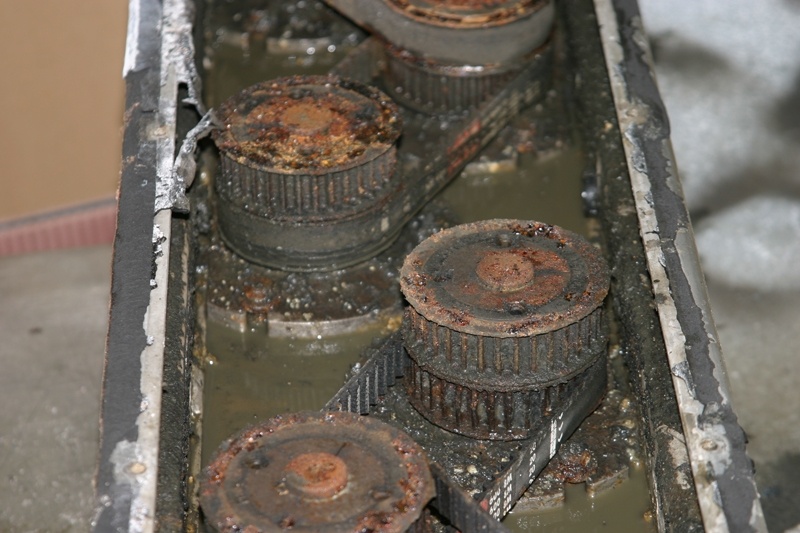
There were so many good questions sent my way on this topic I wanted to do a follow up. So what I am going to do is answer some of the questions here so more folks can have the same information. These are just some of the more common ones and please feel free to send your question if its not answered here.
What about a stainless steel machine?
You can buy wet machines that are made of Stainless steel. The issue is the cost of that machine first. Its not a 10% increase in cost but rather 40% or more in some machines. It will help to keep the skin from rusting but they don't make all of the internal parts from stainless. So you still have the rust on interior parts of the machine. But from across the shop they do look very cool.
Can I put oil or coolant in the water.
Oh boy this one gets a lot of folks. What you add to the tank is a rust inhibitor period. You cant add saw oil or coolant from the mill. Well physically you can add it but it will do nothing to help. We have this oil here for our saws so we use it to not need a separate chemical. This will not work and you will get rust end of story, You have to add the rust inhibitor and in the correct ratio. Then you have to be diligent in checking the water with a refractometer to be sure the ratio stays correct as water evaporates or gets out of the machine. So an additive can help but you have to 100% keep up with it at all times. The negative here is that its hard on silicone and rubber. So you can end up with water leaks due to silicone seals softening and rubber splash guards coming apart. Have a look at the back side of a wet machine or the motors, what you find is a sticky mess that is a lot like honey. This is what is left of the liquid as it dries. It gets on the drive belts and everything making for issues and a mess.
Can I change the water more often?
This will not change much at all. Water is water and it will cause rust when you put it with steel. Then you can not just pump the tank out to a storm drain. As the liquid has suspended solids in it you have to have a company come pump it out. Big machines can have over 125 gallons in the tank so it will not be cheap. You then need to buy more rust inhibitor to add to the new water adding to the costs. Changing the water more often would help extend the life of the water pumps and hoses by getting the debris out of the tank but would not help rust much.
What if I spray down the inside with WD40 or another oil?
Ummm no. This is a bad idea for a lot of reasons. Oil and water do not mix as well all know. That oil will float on top of the water in the machine and tank. It can cause foaming issues depending on what and how much you add. It will cause the parts to move around more as the conveyor belt is now oily. It will cause streaks in the part finish and can gum up the abrasives. In general this is a good way to foul the machine as a whole so don't do it.
My machine has a filter!
And what is your point exactly? They all have a filter and none of them work all that well. The filter tends to just be a gravity bed on top of the tank. Water falls from the top down on to filter paper above the tank. The water is supposed to filter through the cloth while the debris gets caught by the paper. For this whole system to work it has to be adjusted properly and fitted with the correct paper. If the paper is too fine the water and debris just spills over and no filtering takes place. If the paper is too coarse to much debris gets into the tank passing through the paper. If the paper is not advancing fast enough the water just spills over the clogged paper bypassing the filter. Filters also have no real impact on rust at all. Getting the filter to work as designed is like trying to herd cats, its possible but in no way easy.
Then why do they make wet machines?
They can be useful in some applications. If you need to control heat for a grinding application this would be one way to do it. If you work with combustible materials this would be a way to reduce the risk. If you have operators and service staff to keep up with the machine day to day they can 100% work. The reality is that day to day up keep is just very rarely done. If you follow the rules of a wet machine to the letter you can have a good experience and it happens.
These were some of the more common ones I was asked but not all of them. If you have a question please feel free to send it in and it can be answered specifically.
Topics deburring machinemetal deburring machinewet deburring machinewide-belt grinding machinemetal finishing